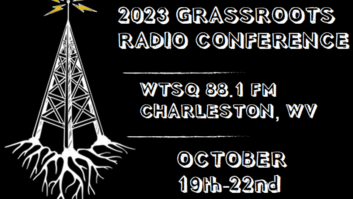
Credit:istockphoto/RTimages Being dissatisfied about something is part of human nature; so it’s not news that radio stations hear complaints from listeners on a regular basis.
It used to be that the vast majority of such complaints would funnel through the request lines in the control room. To music stations, most of the griping would be about the songs played: “Why do you constantly play the same stuff!” “That song sucks!” “You play that song everyday at the same time. I can set my watch to it!” Et cetera.
If a caller sounded serious enough about an issue, the DJ typically would either take down the caller’s number and give it to the program director, or ask the caller to phone the PD directly.
While complaints still do come in via phone, most are now showing up on Facebook, Twitter and email. Which means that often station managers tend toview complaints as a nuisance and a waste of time.
However, I continue to believe that a complaint is an opportunity for a station to turn a detractor into a fan.Because of the viral nature of social networks, it’s more important than ever to have a standard operational procedure in place to deal with disgruntled listeners.
Let’s look at a ways for you to develop your own plan.
Triage system
Complaints range anywhere from trivial toa potential lawsuit waiting to happen. Staff members whorespond to listeners via email or phone — and especially those who handle social media — must understand the difference and be able to triage a complaint so it can be processed quickly and appropriately.
Your “Level One” complaint might concern music repetition, talk show topics, the number of commercials and other mundane issues. PDs should of course be aware ofthese; but thetalent and producersshould be equipped to deal with such issues on their own.
“Level Two” complaints could center around poor reception or interference on-air or online; alleged on-air or online misinformation; or something said or written by a station personality.
“Level Three” complaints could be alleged personal attack, contest fraud or charges made against a station staffer. These are serious enough to warrant attention from your GM. Issues that fall into the levels two and three should immediately be forwarded up a notch to higher management so they get dealt with directly. These kinds of complaints also require supreme listening skills and communication finesse.
Set a station-wide time window for dealing with complaints. The method of response must also correspond to the medium used to lodge the gripe. For example, Facebook posts are most relevant when they are fresh because they are more likely to be seen virally by more people. (Note that time can work against you when dealing with a viral tweet.)
Direct emails and phone calls, which are still one-on-one communication,can probably wait a bit longer; however, since our society’s patience is diminishing, don’t put off getting back to someone by the appropriate deadline. Typically, it just makes matters worse.
Ignore issues at your own peril, especially in the social space where pile-ons happen quickly and negativity spreads about your brand. It’s amazing how many stations today have Facebook pages where listeners are just trying to communicate and nobody is responding.
Hello…is anyone home? Or is a machine running your radio station?
Ouch!
Here’s the opportunity part: When you begin a dialogue with a listener and he or shesenses that you care about his or her concerns, most of the time the listener will thank you. He or she will even say something nice about your station.
Remember, people listen and interact with your brand because they like you in the first place. If they didn’t enjoy something about your product or what you’re doing, they wouldn’t try to contact you to tell you about itat all.
And then there are occasions when you have to extend yourself a bit to convert a temporary enemy. Here’s an extreme example, but one I’ll never forget. I was watching a prize crew hand out CDsprior to a concert. One of the genius interns decided it would be more fun to throw the CDs, like they were Frisbees, into the crowd.
You guessed it: A CD slammed into a concertgoer’s head, cutting him with its sharp corner. Fortunately, having served as witness to this sad state of affairs, I was able to rush over to the injured party. After buying him a beer and offering him free concert tickets to the next show at the venue, I had made a new friend who was prepared to forgive and forget.
Don’t underestimate the power of a personal conversation, whether via social, email, phone or in-person. That “real” interaction allows us to connect as human beings — and with effort we can make friends and bring out the best in people.
The author is president of Lapidus Media and a longtime contributor to Radio World. Email [email protected].












